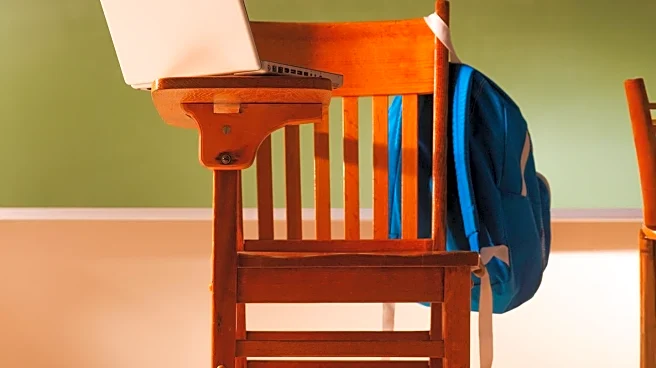What is the story about?
What's Happening?
During the COVID-19 pandemic, a parent decided to homeschool her son, who was in kindergarten at the time, after leaving her teaching job. The decision was influenced by the desire to protect her son from the virus and to provide a more personalized educational experience. Over two years, the homeschooling approach allowed the child to explore subjects of personal interest, such as animals, through visits to the zoo and library. Despite the academic benefits, the parent and child missed social interactions with peers and colleagues. Eventually, the child returned to public school, where he enjoyed the social environment but faced challenges in maintaining the same level of academic focus as during homeschooling.
Why It's Important?
This story highlights the broader implications of educational choices made during the pandemic, reflecting a common dilemma faced by many parents. The shift to homeschooling provided a unique opportunity for personalized learning but also underscored the importance of social development in traditional school settings. The experience suggests that while homeschooling can offer academic advantages, it may not fully replace the social and developmental benefits of in-person schooling. This case illustrates the ongoing debate about the best educational approaches for children, especially in the context of unforeseen disruptions like a pandemic.
What's Next?
As the child continues in public school, the parent plans to support his interests outside the classroom to balance academic and social development. This approach may involve extracurricular activities or additional learning opportunities that align with his passions. The parent also anticipates returning to work full-time, which will require adjustments in managing time and resources. The experience may influence future educational decisions, as the parent weighs the benefits of homeschooling against the advantages of traditional schooling.
Beyond the Headlines
The story raises questions about the long-term impact of pandemic-induced educational changes on children's development. It also touches on the economic implications for families who had to adjust to reduced incomes and benefits while homeschooling. Additionally, it highlights the potential for educational systems to incorporate more flexible and interest-driven learning models, even within traditional settings.















